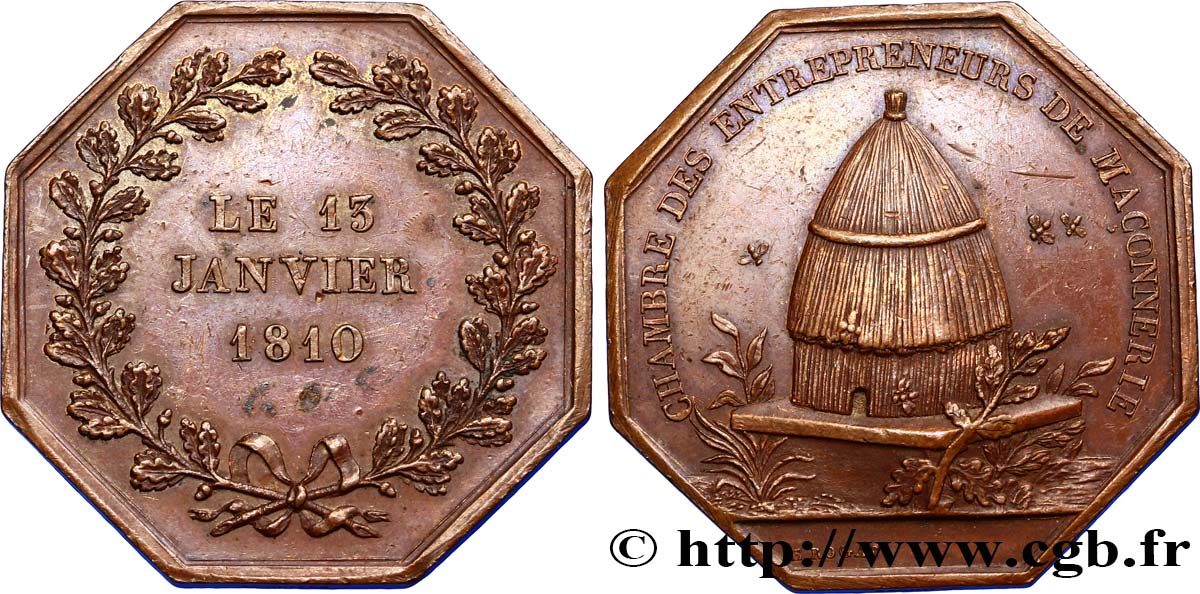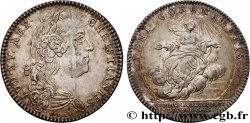You must signin and be an approved bidder to bid, LOGIN TO BID. Accounts are subject to approval and the approval process takes place within 48 hours. Do not wait until the day a sale closes to register. Clicking on « bid » constitutes acceptance of the terms of use of cgb.fr private e-auctions.
Bids must be placed in whole Euro amounts only. The sale will start closing at the time stated on the item description; any bids received at the site after the closing time will not be executed. Transmission times may vary and bids could be rejected if you wait until the last second. For further information ckeck the E-auctions F.A.Q.
NO BUYER'S FEE.
NO BUYER'S FEE.
| Estimate : | 35 € |
| Price : | 12 € |
| Maximum bid : | 12 € |
| End of the sale : | 01 June 2015 18:24:30 |
| bidders : | 6 bidders |
Type : ENTREPRENEURS DE MAÇONNERIE
Date: 1810
Metal : red copper
Diameter : 32,5 mm
Puncheon : Main 1845-1860
Catalogue references :
Obverse
Obverse legend : LE 13 JANVIER 1810.
Obverse description : Inscription en trois lignes entre deux branches de laurier.
Reverse
Reverse legend : CHAMBRE DES ENTREPRENEURS DE MACONNERIE, SIGNÉ E. ROGAT.
Reverse description : Ruche d'abeilles.








 Report a mistake
Report a mistake Print the page
Print the page Share my selection
Share my selection Ask a question
Ask a question Consign / sell
Consign / sell
 Full data
Full data















